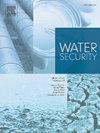Examining the benefits of the build back better concept for Parisian critical infrastructures vulnerable to flooding: From build back better to build better before
Abstract
In this paper, we propose to study the operational interest of the build back better concept (BBB) and highlighting its importance in mitigating risks and improving the resilience of critical infrastructures in the Paris region to flood risk during the recovery and the reconstruction phases. Based on an in-depth examination of the BBB concept and its relevance to risk management, we propose an adapted methodological approach suitable for the Paris Region critical infrastructures. Finally, the approach, initially designed for a reconstruction context, is implemented to reduce the vulnerabilities of infrastructures in the prevention phase. We then talk about build better before and present here a development in this sense. Our proposed framework is structured into two major axes: risk quantification and decision support for the multi-criteria optimization of the investments required to mitigate the quantified risks. With this in mind, we first propose to develop an FMEA (Failure Mode and Effects Analysis) in order to identify and formalize the direct and indirect vulnerabilities of critical infrastructures in a flooding context. The output of the risk assessment is then used within a multi-criteria optimization framework for optimal risk reduction under budget constraints.

 求助内容:
求助内容: 应助结果提醒方式:
应助结果提醒方式:


